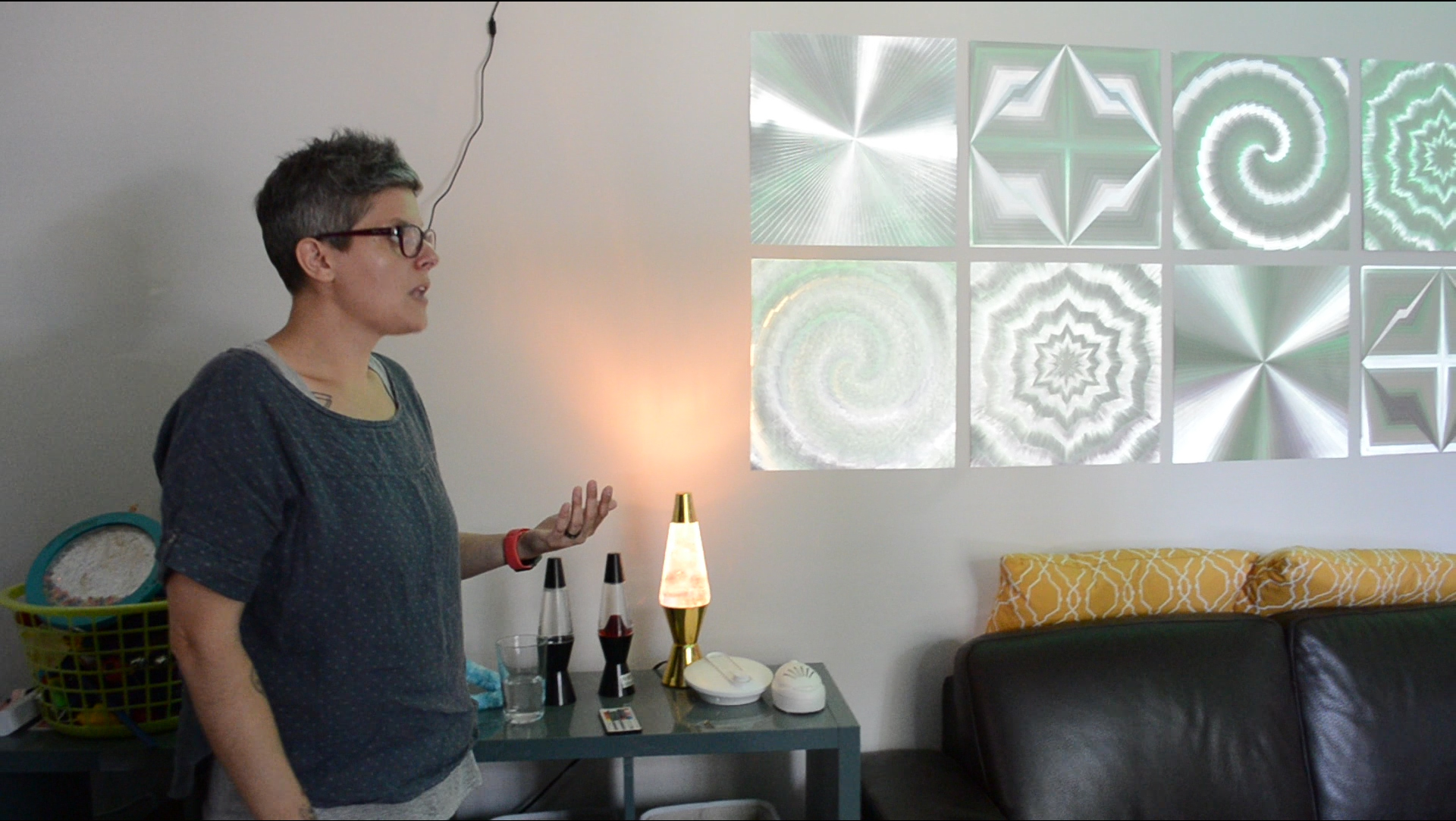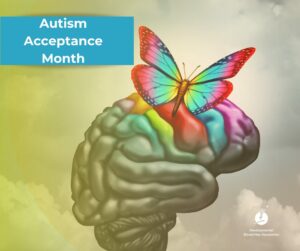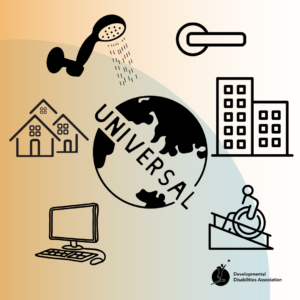As a follow-up to Part 1 of Keegan’s perspective working at DDA, she shares what skills and mindset are important to the organization and what continues to drive her every day.
Can you walk us through what a ‘typical’ day of work looks like for you?
Usually I start by touching base at site, so I’m making sure that there aren’t any scheduling problems if someone’s calling in sick, then checking if I need to be at site to orient a new staff member.
Then, once I have everyone set up and good to go for the day, we’re dealing with specific client-related issues, like setting up medical appointments and getting consults. Those are my first priorities. Once I make sure that the shorter-term care plans have been looked at, then ideally — if all this has not taken my full day, which it often does — I can spend some of my day working on “special projects.”
For example, I have the loom project at Arlington right now. I’m scheduling when people are coming in to set it up. Then I’m scheduling for a trainer to come in, and arranging what staff are going to be trained on them. Working on these projects can take me to the end of my day, and then at the end of the day, I’ll usually touch base again with the afternoon staff to make sure that they’re aware if anything really unusual happened, and if there are any special plans for the evening.
That would be a “normal” day. I’d say that in general, that happens two days out of the week. The rest of the time, I’m really just jumping around to whatever needs there are: someone needs help, there’s an emergency somewhere … you’re jumping into these things as they arise.
How do you handle all of that?
As I said, I love efficiency. I am an extremely efficient person. I think that my time management is really good, sometimes I’ll set two hours for this one project, then move towards something else. If I don’t set that really strict time for myself, it’s really easy to get lost and realize that its 4 o’clock, and I need to start wrapping up for the day.
I think the other side is that we talk a lot about how as care workers supporting people with disabilities, we should be trying to work ourselves out of jobs. We want to be teaching independence. So if someone wants to learn how to brush their teeth, we’ll teach that hand-over-hand. Maybe they’ll start by doing three strokes by themselves, and I’ll do the rest. And we’ll slowly bridge until they don’t need me anymore to brush their teeth.
I’ve applied that same principle to training and developing my staff team. I think that’s why we have functioned so well, because I know that I can call my staff and tell them what’s been going on and what type of work still needs to be done, and trust that everyone knows what part they need to do. Teaching how to be adaptable in different situations, rather than telling how to deal with each particular situation has been really key in developing that system there.
Is this the first job that you’ve worked managing so many different people?
To this extent, yes. I’ve managed smaller groups before. Part of my previous role was being a trainer with the school district, so I would run workshops on various things like sign language, behavioural intervention, and musical enrichment to teachers and other training groups. Teaching a small class of children is very different from teaching and managing a group of adults.
What kind of skills are absolutely necessary to working at DDA?
A willingness to be flexible and to learn new skills is important.
I think you need to have what behavioural analysts call a “low-arousal approach,” which basically means that when things are hectic — you’re dealing with a medical emergency, you’re working with individuals with behavioural challenges — your ability to stay calm is huge. When you’re calm, everyone else is calm. The last thing you need is someone who’s having a crisis seeing the person who’s supposed to be supporting and helping them, also having a meltdown.
The last skill and personality trait would be patience and compassion, and realizing that you’re supporting people who do have extra challenges and need more time. I think that having that understanding, even if it’s something like taking 30 minutes to put on their shoes, to do that independently is so important. So you’re going to support them for that 30 minutes, even though that takes longer than it would for you to just do it for them, and it seems like a very long time to be putting on shoes, but you are supporting their ongoing growth and learning.
If you had to describe working at DDA in 3 words, what would they be?
Opportunity, enrichment, and integration.
Did you have any idea before starting at DDA, that you would have the opportunity to be taking on such a diversified position?
Like most things that happen in this field of work, it’s been one thing that’s led to another that’s led to another. I am that person who will say yes if you ask. I don’t necessarily know what I’m getting into, but yes! I think it all goes back to that thought of: “If I can help, why am I not helping?”
Do you have any advice for anyone starting at DDA?
In general, I’d say to come in with an open mind. How we approach community living and our care within the group homes is really different from a lot of other places that you will see. I think a lot of people are surprised that it’s so home-like. This is their home; we want it to look like a home. People coming in with an open mind and realizing that each person is unique, and that each house is unique and has its own culture, gives them the chance to find their role in it.
Is there anything else you wanted to add today?
I think the question that people always ask is “why?” Why are you working here? Why aren’t you a teacher? And my response has always been that I love my job. Happy staff means you stay longer. I’ve have had the opportunity to be a catalyst of some interesting projects that benefit the people we’re serving. I think that’s been a big factor in why I want to stay. I’m not interested in going anywhere else. I’m here by choice.
We are currently hiring for our Residential Services Program. Join us today.



